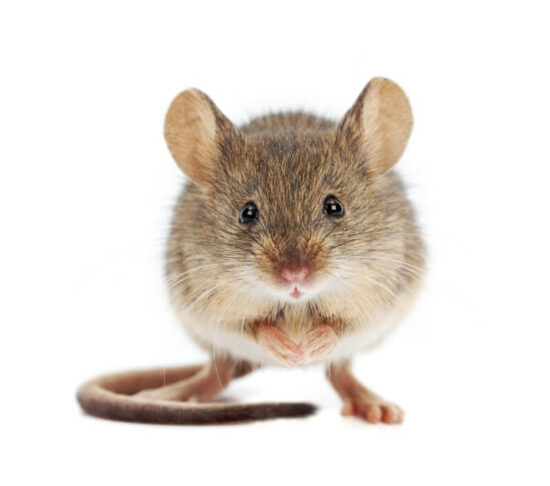There’s a lot of debate out there on if mice can “scream” or not, and a lot of it comes down to how you define this vocal act!
This guide breaks down screaming mice, and why they might decide to make this noise.
Can Mice Scream?
Mice are fully capable of making tons of noise. Usually, you don’t hear any of it during the day because these rodents spend their time hiding or sleeping. But in the dead of night, when everything is quiet, it can become evident that you’re dealing with a mouse infestation!
The most common sounds you’ll hear are a product of the pest’s movement. For example, you might hear it scurrying along on hard floors or scratching walls as it navigates tiny voids in your wall. Because most residential walls are hollow, those noises can sound amplified and somewhat jarring.
But outside of that distinct scurrying, there’s the dreaded scream.
Yes, mice can scream! The noise is surprising and often catches people off guard whenever they hear it. It’s one of the more unexpected vocalizations of the rodent, and most people aren’t aware that it’s something these pests do.
These tiny rodents have a reputation for being quiet and meek. But make no mistake: They can be loud if the situation calls for it.
A mouse scream isn’t necessarily a “traditional” scream like you would hear from a human. It’s more like an amplified squeak.
It’s high-pitched, and many compare it to the sound of an abrasive whistle or alarm.
Mice often squeak as they explore new places and search for food. If you ever hear that noise, you’ll notice it’s usually quiet and scratchy. A scream sounds like a mouse cranks that squeak up to 11!
It’s more powerful than a common vocalization, making it far more audible than anything else. These pint-sized pests can vocalize in frequencies outside the range of human hearing. But screams are right in that sweet spot, creating an audible sound that’s nothing short of grating!
Why Do They Do This?
There are many reasons why mice might be screaming (or vocalizing in general). Those soft squeaks you might hear through your walls are a form of communication. Mice are rarely alone, choosing to travel in pairs or small groups for safety.
Squeaking is their way to check in and keep lines of communication open with others in their party. It’s precisely what you would do if exploring unfamiliar surroundings with a group of friends. And like you would make an exclamation with a discovery, mice vocalizations usually get louder when they come across food, water, or possible shelter.
The louder noises aren’t quite up there with screams, but they are certainly noticeable. The squeaks get louder and more powerful when faced with danger, during mating sessions, when discovering food, and more.
So what about screams?
Mice will scream often for the same reason you would scream: Something scares them!
Mice are naturally skittish creatures. They have to be to survive. If they weren’t overly cautious of their surroundings, they would be much easier to catch and exterminate.
With that nervous demeanor, mice get scared with just about everything! Many things can set them off. It could be a loud noise nearby, a sudden shining of light, the spotting of a human, or even the random scurrying-by of a giant insect. Anything that catches them off guard can result in a scream.
You may also hear screams if a mouse gets separated. In the face of danger, these rodents often flee in all directions to evade capture. That sometimes leaves some pests solo.
When that happens, they get scared, and the screaming can start. The screaming serves a few different purposes. First, it can scare off would-be predators. But more importantly, it could help the others in the group locate the lost mouse.
Do Mice Scream When They Die?
The thought of hearing a mouse scream as they die is pretty grim. However, it can happen.
Whether or not a mouse screams when it dies usually depends on the cause of death.
If you use a standard snap trap, it’s unlikely that you’ll hear screams. A soft squeak might come out, but these devices move so fast that most mouse victims don’t have much time to react. As a result, screaming is rare.
Now, you might hear screaming if you used a cheap trap that didn’t provide enough force to kill the mouse. When that happens, mice get severely injured and could start screaming as they slowly die!
The time when you’re most likely to hear screams is when a mouse has time to be scared about its eventual demise. For example, it’s common when stuck on glue traps or relocation traps.
Glue traps create a pretty grim fate. Mice physically can’t move when they’re stuck on these apparatuses, resulting in instant fear. That’s when the screaming starts. Fortunately, many mice tire themselves after several minutes and go quiet as they wait for their fate.
Screaming is common in bucket traps and catch-and-release traps, too. The funny thing is that many caged traps are used as a more ethical alternative to spring and glue traps. In most cases, exterminators relocate the pests elsewhere instead of killing them.
Of course, the mouse doesn’t know that, so they scream bloody murder anyways!
Overall, screaming can occur as a mouse dies. But if it experiences a relatively quick death, there’s a good chance that the pest will go quietly.
Conclusion
Mice can scream, and the reason for this noise will vary. However, if you understand the possible causes behind this vocalization it will be far less likely to startle or confuse you.
If you have any questions about mice screaming, send them over! We’ll answer them as soon as we can.


